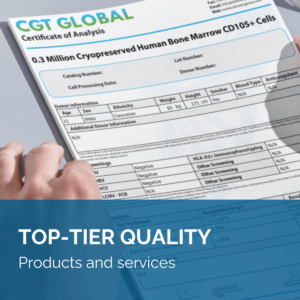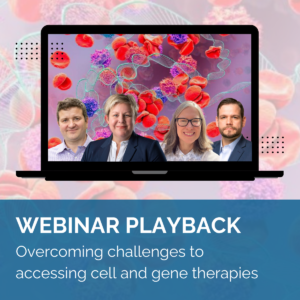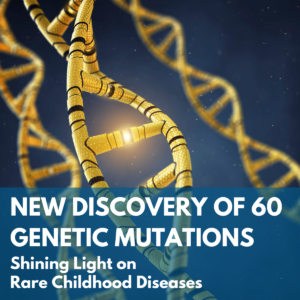CAR-T Cell Therapy
Treatments for cancers of the blood have been historically based on surgery, chemotherapy, and radiation therapy with more recent treatments focused on adoptive T cell therapy (ACT). ACT is most commonly applied by isolating tumor-infiltrating lymphocytes, which are naturally enriched from tumor-specific T cells, expanded in culture, and reintroduced back into the patient. Although this was a major breakthrough using ACT, the results had limited success on patients.
Within the last few years, chimeric antigen receptor (CAR)-T cell therapy has gained acceptance as a hopeful treatment for many B cell-related cancers such as acute lymphoblastic leukemia (ALL), diffuse large B-cell lymphoma, and multiple myeloma. This type of cellular therapy redirects a patient’s T cells to recognize and attack their tumor cells. Patient’s cells are collected via apheresis, a process that withdraws the white blood cells, and selected for CD3+, CD4+, or CD8+ T cells using antibody-bead conjugates. The T cells are genetically engineered to produce CARs on their surface that allows the T cells to recognize a specific protein on tumor cells. In most cases, the protein of target is the CD19 receptor (antigen). The CAR-T cells are expanded in the laboratory until a sufficient number is obtained. Once expanded the CAR-T cells are transfused back into the patient.
Success Stories
There have been a number of reported successful clinical trials using CAR-T cell therapy for B cell malignancies such as leukemia, myeloma, and lymphoma.
In a study at Children’s Hospital of Philadelphia (CHOP) under Stephan Grupp, MD, PhD, 30 ALL patients were infused with autologous T cells transduced with CD19-directed CAR. All signs of cancer disappeared in 27 of the 30 patients with 19 of the 27 patients remaining in remission. In a follow-up study that included 39 pediatric patients, 92% showed complete remission.
In a phase 1 study by National Cancer Institute’s (NCI) Pediatric Oncology Branch (POB), Crystal Mackall, MD, showed that 14 of 20 patients with ALL responded positively to CAR-T cell treatment. Memorial Sloan Kettering Cancer Center (MSKCC), NCI’s Surgery Branch, and Fred Hutchinson Cancer Research Center (FHCRC) have seen similar results for their phase 1 studies with remission rates of 70-94%.
An early phase clinical trial, by Nanjing Legend Biotech, that came to light at this year’s American Society of Clinical Oncology (ASCO), showed that 33 of the 35 patients using the CAR-T cell product, LCAR-B38M, showed clinical remission within 2 months.
Side Effects
In some studies, cancer recurrence occurred and no longer responded to CAR-T cell treatment. It was found that these tumor cells lost the CD19 receptor that the CAR-T cell targets. To offset the tumor antigen loss, CAR-T cells are being engineered to recognize multiple antigens on the tumor cell surface and are currently being tested in preclinical trials.
Cytokine Release Syndrome (CRS) was observed in some of the clinical trials. In a normal response to an infected cell or tumor cell, T cells can secrete cytokines to elicit an immune response. However, when there is a rapid release of cytokines into the bloodstream the patient can experience high fevers and a drop in blood pressure, commonly known as CRS. It was found that patients in the CAR-T cell trials that had the most extensive disease prior to treatment were more likely to experience severe CRS. Administration of cytokine inhibitory drugs, etanercept, and tocilizumab were able to manage the cytokine levels during treatment.
The Future
With the success of phase 1 clinical trials for B cell malignancies, other scientists have been asking whether or not CAR-T cell therapy can work on solid tumors. Two groups have experimented with the use of CAR-T cells to target solid tumors such as breast and brain cancers.
At the University of Pennsylvania’s Center for Cellular Immunotherapies scientists, Carl June, MD and Yangbing Zhao, MD, PhD, engineered a CAR-T cell that targeted ErbB2 on breast cancers. Since ErbB2 is also expressed at lower levels on normal cells, Zhao and colleagues engineered a low-affinity ErbB2-directed CAR-T cell that targeted cells highly expressing the ErbB2 antigen (breast cancer cells).
In a similar study, conducted by Laurence Cooper, MD, PhD, at The University of Texas MD Anderson Cancer Center, brain cancer cells were targeted using EGFR-directed CAR-T cells. Facing a similar issue as seen with the ErbB2 cells, Cooper and colleagues created a low-affinity EGFR-directed CAR-T cell that targeted highly expressing EGFR brain cancer cells without binding to normal EGFR expressing cells.
Although the research appeared promising for solid tumors, clinical trials have not been encouraging, leaving many hurdles to overcome.
Conclusion
There has been success in the clinical trials of CAR-T cells targeted at B cell malignancies such as leukemias, myelomas, and lymphomas. Advancement in the areas of safety and effectiveness of this new form of treatment is ongoing with positive outcomes. Follow-up of long-term disease outcome of treated patients still needs to be determined. Although in its infancy, this novel immunotherapy approach now gives hope for a cure to once incurable diseases.
StemExpress Products for Your Research Needs
At StemExpress we offer human blood products such as whole blood and Leukopaks as well as peripheral blood CD3+, CD4+, and CD8+ T cells in fresh or cryopreserved formats vialed at varying cell volumes. Purified primary CD3+, CD4+, and CD8+ T cells are a timely source and cost-effective means of obtaining cells for use in CAR-T cell research studies. All blood collections follow IRB approved consents and protocols that meet Good Clinical Practice standards using HIPPA complaint collection and software systems.
Contact one of our sales specialists at 530-303-3831 to discuss the specific needs of your project or fill out our Contact form for additional information.







